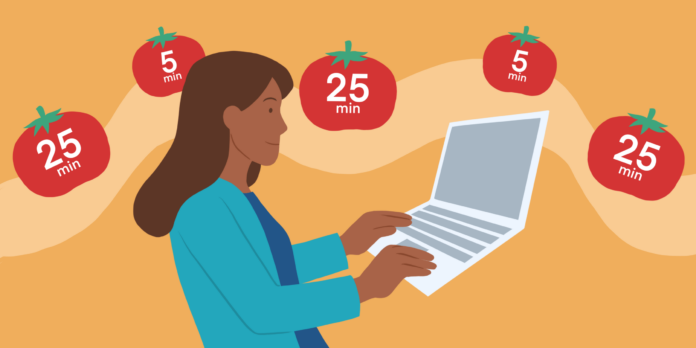Excelling in exams is a goal cherished by students across the globe. It’s not just about securing high grades; it’s about showcasing your understanding, dedication, and potential. In today’s fast-paced world, where knowledge evolves rapidly, staying ahead requires more than just rote memorization. Welcome to the “Exam Ace: Insider Tips on How to Excel in Every Test – 2025 Guide,” where we’re about to unveil a treasure trove of strategies to empower you in your educational journey.
The educational landscape in 2025 is transforming at an unprecedented pace. With advancements in technology and evolving teaching methodologies, students are experiencing education in new and exciting ways. Traditional lectures are blending with online modules, and collaborative learning is extending beyond the classroom. Our guide bridges this evolving landscape with timeless techniques that stand the test of time. Let’s delve into the strategies that will help you conquer any exam.

Understand Your Learning Style
We all learn differently, and acknowledging your unique learning style can significantly boost your study efforts. Visual learners grasp concepts through images, diagrams, and charts. Auditory learners thrive on explanations and discussions. Kinesthetic learners benefit from hands-on experiences. Identifying your style allows you to tailor your study methods for maximum effectiveness.
Once you’ve identified your learning style, align your study techniques accordingly. Visual learners can create visual aids like mind maps and flashcards. Auditory learners benefit from recording summaries and listening to them. Kinesthetic learners should incorporate movement while studying. Adapting your strategies enhances information retention and understanding.
Effective Study Techniques

Effective study techniques are like magic spells that can transform your learning experience. Active recall involves quizzing yourself with platforms such as Gizmo, which reinforces memory retention. Spaced repetition strategically revisits material at intervals to enhance long-term memory. Summarization involves condensing information into concise notes, promoting better understanding.
The science behind these techniques lies in how our brain processes information. Active recall engages retrieval pathways, strengthening memory. Spaced repetition optimizes forgetting curves, leading to better retention. Summarization requires comprehension, solidifying understanding. Integrate these techniques into your study routine for extraordinary results.
Time Management Strategies

Time management is the compass guiding you through the labyrinth of exam preparation. The Pomodoro Technique divides study time into focused intervals, enhancing concentration and preventing burnout. Time blocking allocates specific time slots for different subjects or tasks, enhancing productivity and organization.
Creating a study schedule tailored to your energy levels and commitments ensures optimal utilization of time. Prioritize tasks, allocate breaks, and maintain consistency. The right schedule can transform overwhelming study sessions into manageable tasks, increasing your efficiency and success.
Stress Management and Mindfulness
Stress and exams often go hand in hand. Unmanaged stress can sabotage even the best-prepared minds. Enter mindfulness – a powerful tool to combat stress. Mindfulness techniques, like deep breathing and meditation, calm the mind and enhance focus. Integrating mindfulness into your daily routine cultivates emotional resilience.
Mindfulness rewires your brain, decreasing stress-related responses and improving cognitive function. Practice mindfulness during study breaks, before exams, and in everyday life to build a shield against stress. A clear mind is vital for optimal exam performance.
Utilizing Available Resources
Education is a vast sea, and textbooks, online courses, libraries, and peers are your navigation tools. Textbooks provide comprehensive knowledge, while online courses offer interactive learning experiences. Libraries harbor a world of resources, from research papers to historical documents. Engage in online forums and study groups for diverse perspectives and collaborative learning.
Effective resource utilization involves setting clear goals, maintaining consistency, and staying open to new ideas. Blend different resources to create a holistic understanding. Curate a study toolkit that combines traditional wisdom with modern tools for maximum impact.
Note-taking Strategies
Note-taking is your personal bridge between learning and retaining. Different methods suit different subjects and learning styles. The Cornell method organizes information for easy review. Mind mapping visually represents interconnected ideas. Digital notes offer accessibility and organization.
Effective note-taking engages your brain, improving understanding and retention. It distills complex ideas into bite-sized concepts. Experiment with different methods to discover what resonates with you, and continuously refine your note-taking skills.
Healthy Lifestyle and Exam Performance

A healthy body supports a healthy mind. Nutrient-rich foods provide the fuel your brain craves. Regular exercise boosts oxygen flow to the brain, enhancing cognitive function. Sleep, the brain’s reset button, is non-negotiable. Hydration ensures optimal brain function and prevents fatigue.
Maintaining a balanced lifestyle improves focus, memory, and overall cognitive performance. Prioritize nourishment, movement, and rest. Your brain operates at its best when your body is in its prime.
Preparing for Different Types of Tests
Tests come in various shapes and sizes, and each demands a tailored approach. Multiple-choice tests require critical thinking and elimination strategies. Essays demand clear structures and evidence-backed arguments. Practical tests necessitate hands-on practice and procedural understanding.
Understanding the nuances of each test type enables you to navigate them with confidence. Develop strategies for time management, response structuring, and content mastery specific to each format. A well-prepared toolkit equips you to face any test head-on.
Self-assessment and Mock Tests
Self-assessment is a mirror reflecting your strengths and weaknesses. Mock tests simulate the real exam environment and pinpoint areas needing improvement. Crafting mock tests sharpens your understanding, while taking them enhances exam simulation.
Mock tests provide insight into your readiness and illuminate areas requiring more attention. Celebrate your progress and tackle challenges head-on. Embrace self-assessment as a tool for growth.
Overcoming Test Anxiety

Test anxiety, the shadow lurking during exams, is conquerable. Breathing exercises and positive affirmations anchor you in the present moment. Preparation is your armor; remind yourself of your hard work. Embrace exams as opportunities to showcase your knowledge.
Shift your perspective from anxiety to excitement. Believe in yourself and your abilities. Confidence and preparation are the antidotes to test anxiety.
Wrapping Up and Celebrating Success
Congratulations! You’ve embarked on a journey armed with insider tips for exam excellence. Recap the key takeaways: understanding your learning style, implementing effective study techniques, managing time and stress, harnessing available resources, and adopting a healthy lifestyle. These tools transform challenges into triumphs.
As you navigate your educational voyage, remember that success is a culmination of hard work, dedication, and growth. Implement the strategies in this guide, adapt them to your unique journey, and witness the transformation in your exam performance. Embrace the challenges, celebrate the victories, and revel in your journey to becoming an exam ace.










